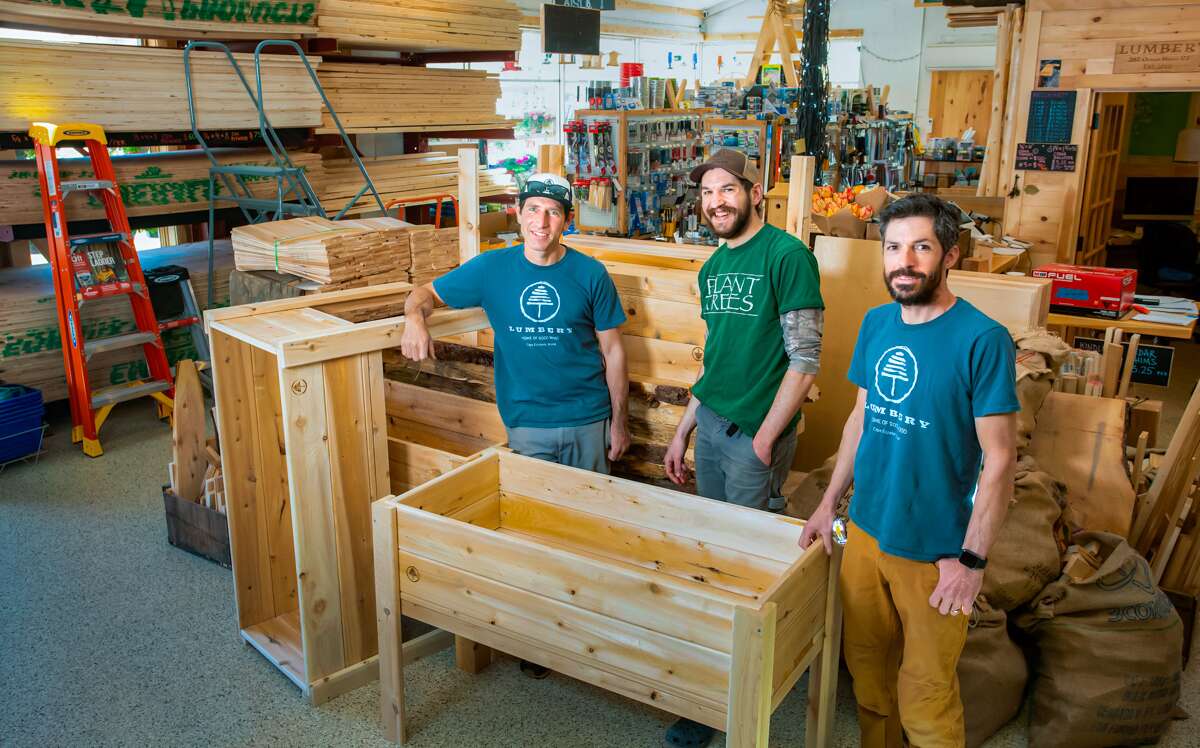
Across Maine, small businesses keep their cool while the pandemic rages on
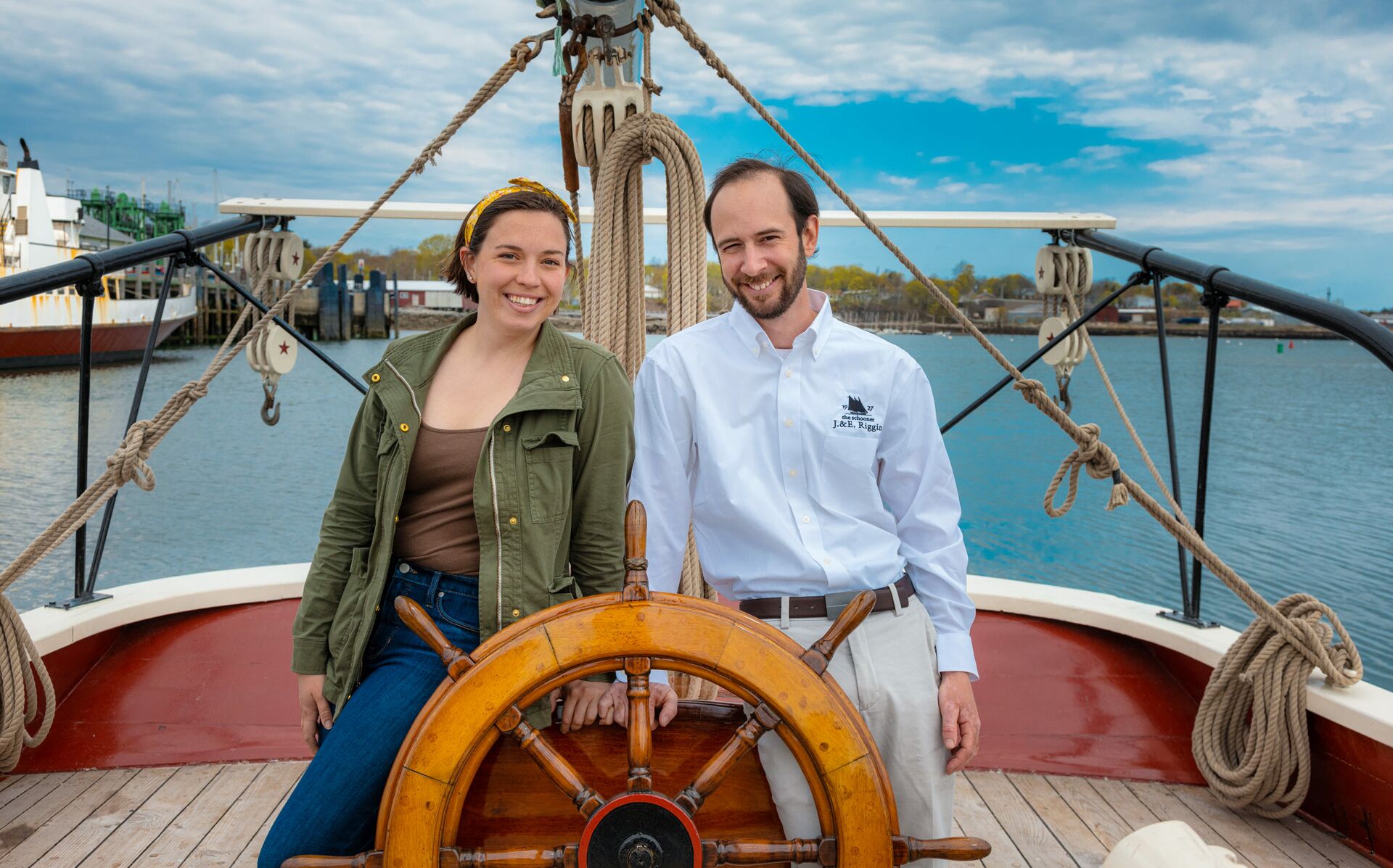 Photo / Dave Clough
Captains Justin Schaefer and Jocelyn Schmidt bought the 120-foot passenger schooner J.&E. Riggin in February and are booking up quickly.
Photo / Dave Clough
Captains Justin Schaefer and Jocelyn Schmidt bought the 120-foot passenger schooner J.&E. Riggin in February and are booking up quickly.
In 2019, the owner of a handyman business in Cape Elizabeth had an idea to open a building supply store that sold lumber produced only in Maine.
Michael Friedland opened the Lumbery last November. The timing wasn’t the best.
“It was a slow winter,” Friedland says. “It’s not the best time to start a new business in a pandemic in the winter.”
Still, a slow start wasn’t the worst thing. It allowed Friedland and his partners to get a handle on how to run a retail business, which they’d never done before. With springtime, they discovered new niches, such as making raised cedar bed kits, which were so popular that he recently had 20 on back order.
Dealing with the negative and looking for the positive just about sums up the story of many small businesses around Maine over the past year.
From locally sourced lumber to schooner charters and island bakeries, some business owners were just getting started a year ago. Others are long-timers trying to get through.
We checked in with six businesses to see how things were going. Common themes? They’re doing okay and some have surprisingly strong trade. All received strong support from local communities that wanted to see them succeed through uncertain times.
Cape Elizabeth: The Lumbery
Friedland also has a handyman business, Willard Square Home Repair. Since he had to stock his own wood, he saw an opportunity to open a store to sell lumber and building supplies to other small businesses and also leverage the local-sourcing movement.
Friedland and his partners renovated a former Cumberland Farms, invested about $700,000 and sweat equity, and developed relationships with family-owned mills in all corners of Maine.

“We’re the first place in Maine where you can actually buy Maine wood,” he says.
He says he’s been contacted by state forestry officials interested in the program. The UMaine System has expressed interest in sourcing cedar products there for its gardening program.
It has gotten noticed in Maine publications, web searches and social media (including its Instagram feed, @lumbery_me). “I think we’ll have a banner summer and fall,” he says.
Rockland: Schooner J.&E. Riggin
Captains Justin Schaefer and Jocelyn Schmidt bought the 120-foot schooner J.&E. Riggin in February. Built in 1927, the schooner is homeported in Rockland and offers visitors multi-day sailing vacations.
Schaefer grew up on New York’s Long Island and Schmidt in Ohio. They met while working on Rockland schooners and developed a plan to buy the Riggin. Business success was baked in: Under previous ownership, the Riggin was featured in dozens of national media outlets.
“It’s shaping up to be a pretty normal summer,” says Schmidt. “There seems to be a lot of interest in coming to Maine this year. We’re getting reservations from folks who had to cancel trips abroad. We booked a family who had a trip planned to Scandinavia. They said, ‘We heard Maine has a rocky coast and a fjord.’”
Returnees are also booking.
“They’re saying, ‘I’m feeling much more confident about travel now,’” she says. “People don’t seem to mind taking precautions if it means they can get out of their house.”
The season starts late May with a private school charter. Specialty trips, like knitting and photography cruises, are filling up. There’s a wait list for a rug-hooking cruise.
“They sit on deck and knit or hook rugs while this beautiful scenery goes by,” says Schaefer.
The sentiment? Excitement.
“The crews are back on the dock,” says Schaefer. “We’re seeing familiar faces that were quarantining or away for the winter.”
“If this is what a season looks like on the heels of a pandemic, then the future is bright,” says Schmidt.
Chebeague Island: Slow Bell Café
In January, the owner of Slow Bell Café on Chebeague Island set up a GoFundMe campaign in hopes of making it through 2021.
May Hall is director of nursing at Falmouth By the Sea and also owns the café, an important part of life in this small community. She splits summers between nursing and the café.
“I nap in the winter,” she jokes.
Last year saw a 60% drop in revenue. Hall kept things going with loans and her own savings. But taxes, leases, wages, bills and startup costs for 2021 were overwhelming.
The matching-grant GoFundMe set a goal of $20,000. The fundraiser helped Hall deal with outstanding bills and put in fencing to designate safe distancing. Many employees are returning.
This year, she opened part-time in January.
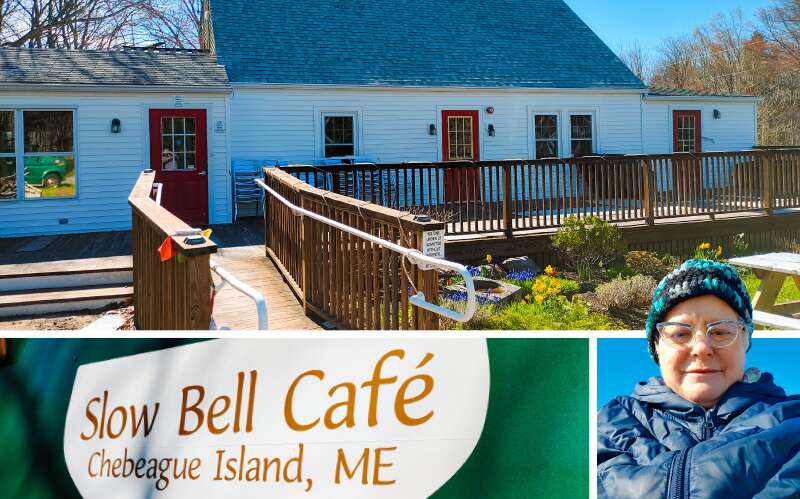
“The island is a really small community, so we’ve been opening for take-out,” she says.
The plan is to start indoor and outdoor dining with safety protocols by Memorial Day weekend. They’ve booked a number of weekends with live music outdoors.
“I just really appreciate the community’s support,” she says. “We also had people who weren’t willing to go out but donated money to keep us afloat.”
Machias: Machias River General Store
In 2019, two couples, Gina and Harry Finn and Isaiah and Caissie Roberts, bought a building and store at 25 Main St. in Machias. The Finns and Isaiah Roberts established the Machias River General Store. Caissie started a store called Sew Fetch Dog Collars. Gina also teaches and Harry and Isaiah are with the U.S. Merchant Marine.
They stocked the store with goods from Maine-based companies. Vendors include Monica’s Chocolates in Lubec and Momo’s Cheesecakes in Ellsworth.
“We’ve done really well,” says Gina.
Early in the pandemic, Gina closed the store until safety protocols were in place, then reopened for curbside pickup. With only one supermarket in the area, she says, she felt it was important to continue to make her bulk, organic and allergen-free items available. Locals responded by stopping in even more. This year, additional customers include people moving to the area and Mainers on staycations. Additional revenue comes from rentals in the building’s upper stories.
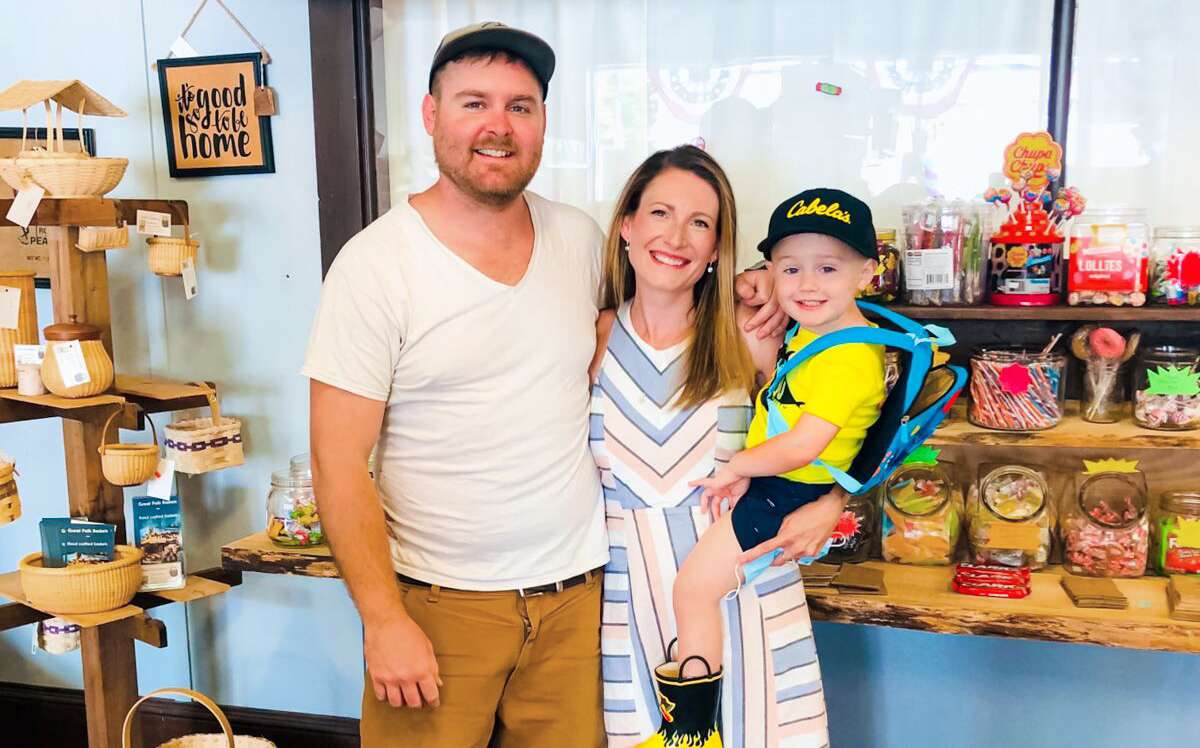
“We’ve been able to take care of our employees, which was important to us,” she says. “We feel pretty positive and excited to see what the future holds.”
Her sense is that more people are discovering the Downeast region.
“During the pandemic, people had more free time to look online and see stores that maybe they wouldn’t have before,” she says. “We also had a lot of customers who once lived in our area. They were calling to see if we would ship products, to help support us as a store in their hometown.”
Long Island: Byers & Sons Long Island Bakehouse
In March 2020, Catlin and Matthew Byers bought the Long Island Store, dating back to 1909, and created Byers & Sons Long Island Bakehouse.
Catlin’s family has long summered on Long Island. She’s a former business analyst and advertising agent. Matthew is a merchant mariner who ships out six months each year.
They signed a purchase-and-sale as the pandemic was taking hold, had a chance to back out, persevered, performed renovations and opened last June.
Operations surpassed expectations, with over $250,000 in sales, which they reinvested into renovations, equipment upgrades and debt service. Sales included over 5,000 home-baked goods and 23,000 gallons of gasoline. Over the winter, they maintained limited hours to sell gasoline and monthly pizza.
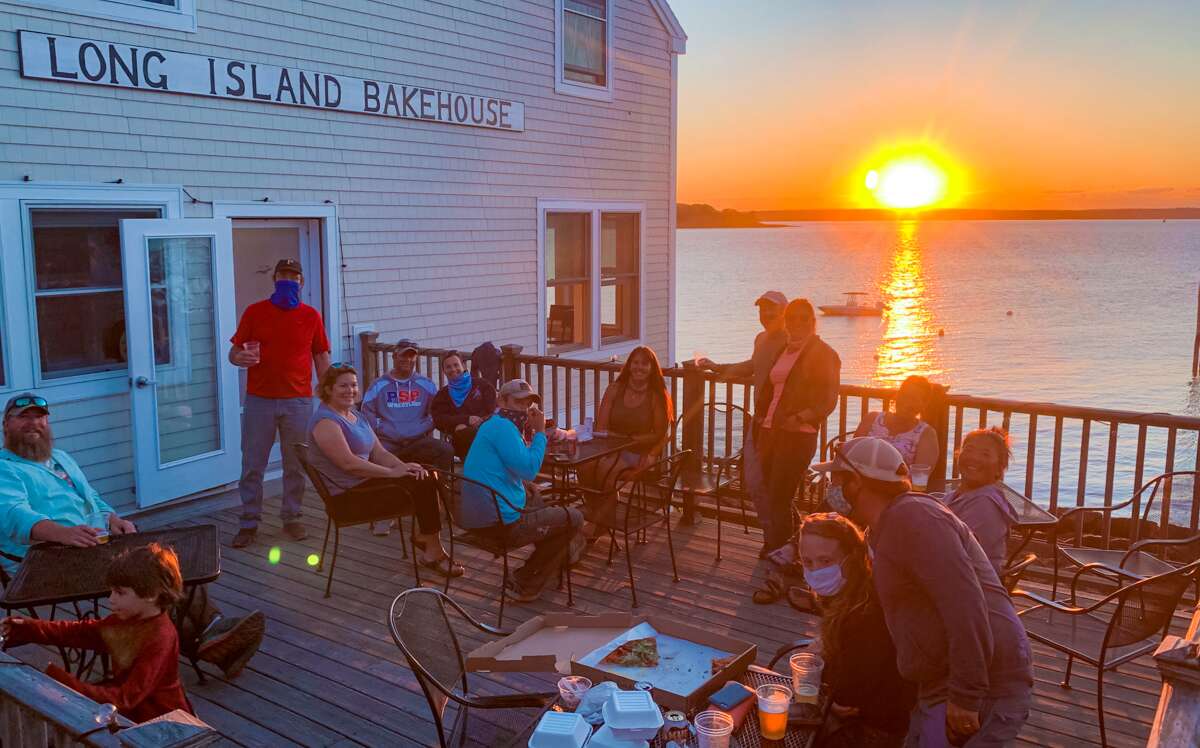
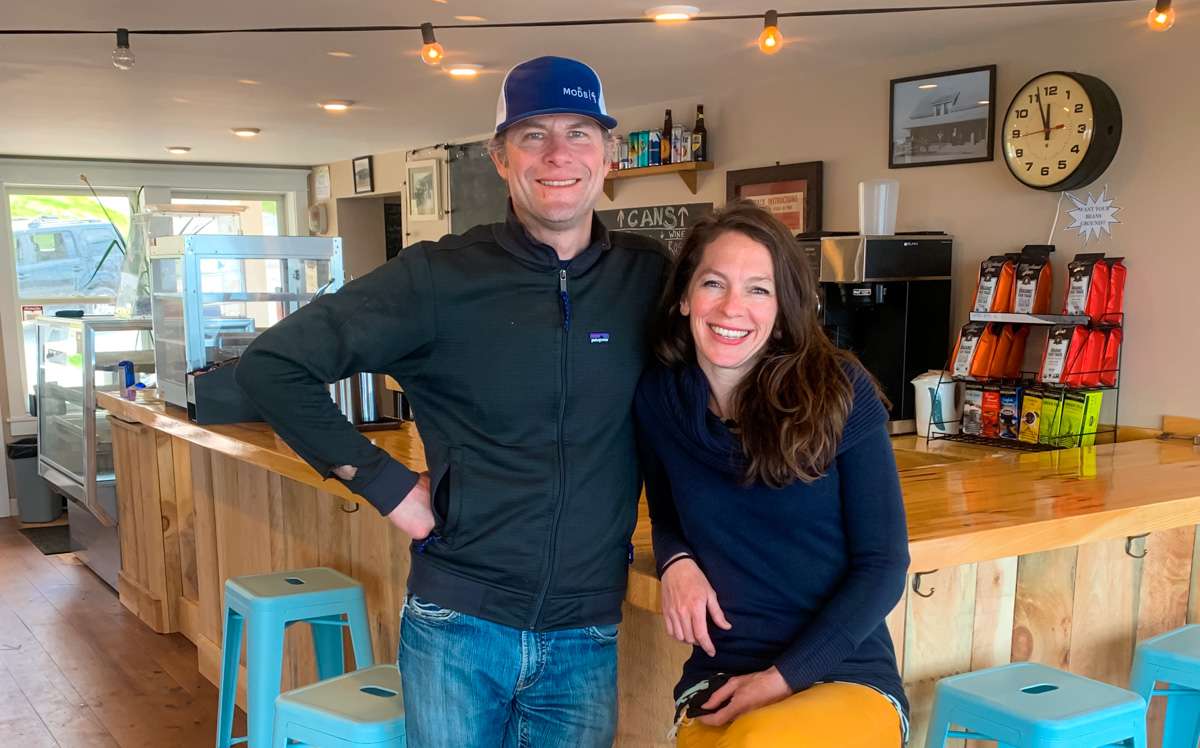
“I have never worked so hard in my life, and we’re happy that we made enough money to pay the bills,” says Catlin.
Last summer saw as many as 300 orders per day. They expect that to increase this year, based on the number of renters and vacationers they’ve seen.
“We haven’t seen this level of activity for a long time, especially this early in the season,” she says.
Northeast Harbor: Nor’Easter Pound & Market
When Ronald Musetti and Adam Fraley, childhood friends now in their early 20s, conceived the idea of opening a restaurant and retail seafood market in Northeast Harbor, they didn’t know they’d be opening in a pandemic.
They adapted.
Fraley is trained as a naval architect. Musetti is a lobsterman. They opened the Nor’Easter Pound & Market a year ago with online ordering, curbside takeout, a wide-open deck and spaced indoor dining.
The business leverages local products, including Musetti’s lobsters, combined with a local movement seeking to position Northeast Harbor as a destination. Financing mainly with savings, a small bank loan and sweat equity, success struck early.
“The deck was fully booked throughout the summer,” says Fraley. “People stayed interested well into October. They brought blankets.”
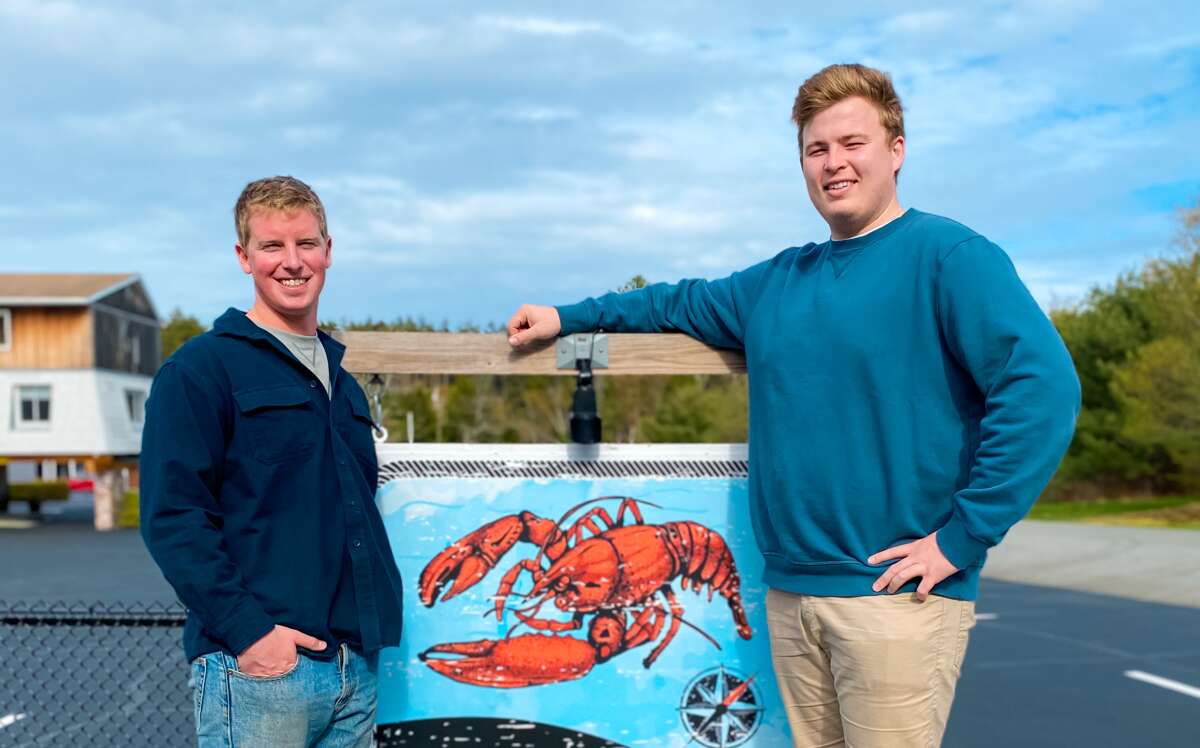
They sold retail seafood, too.
“That turned out to be very successful,” he continues. “Lots of people were cooking at home.”
This year, plans including installing barriers to allow more seats in the bar area and HEPA air filtration units; shipping seafood nationwide, possibly year-round; and streamlining the takeout process.
“Quite a few people ask us to send seafood to relatives,” he says. “We’ll also have it available to order through our website. We’ll do a lot of advertising this year.”
The venture started with anxiety.
“But between having the space we did and people making a conscious effort to support us, we did pretty well,” says Fraley. “We paid all our bills and had enough going into this year.”










0 Comments